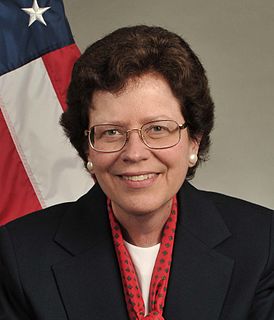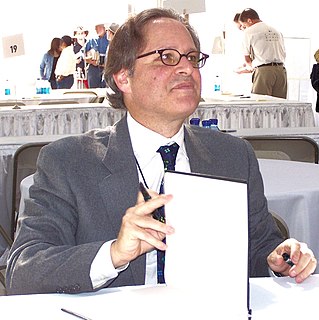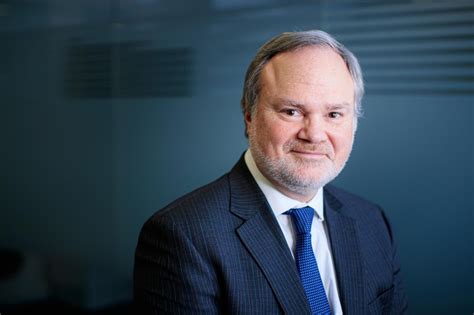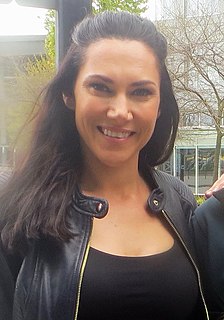A Quote by Matt Taibbi
This story is the ultimate example of American’s biggest political problem. We no longer have the attention span to deal with any twenty-first century crisis. We live in an economy that is immensely complex and we are completely at the mercy of the small group of people who understand it – who incidentally often happen to be the same people who built these wildly complex economic systems. We have to trust these people to do the right thing, but we can’t, because, well, they’re scum. Which is kind of a big problem, when you think about it.
Quote Topics
About
American
Any
Attention
Attention Span
Because
Big
Big Problem
Biggest
Built
Century
Complex
Crisis
Deal
Do The Right Thing
Economic
Economic System
Economic Systems
Economy
Example
First
Group
Happen
Immensely
Kind
Live
Longer
Mercy
Often
People
Political
Problem
Right
Right Thing
Same
Scum
Small
Small Group
Span
Story
Systems
The Right Thing
Thing
Think
Trust
Twenty
Ultimate
Understand
Well
Which
Wildly
Related Quotes
We love a world in which the people in the white hats get rewarded and the people in the black hats pay the price. And that I have to say doesn't happen very often, particularly in a very complex economy. We're in a time of panic where people have lost trust in what the banks are doing, what the investment firms are doing - lost trust beyond a level of reasonableness, to be honest. And, it's got to be stopped.
Complexity has and will maintain a strong fascination for many people. It is true that we live in a complex world and strive to solve inherently complex problems, which often do require complex mechanisms. However, this should not diminish our desire for elegant solutions, which convince by their clarity and effectiveness. Simple, elegant solutions are more effective, but they are harder to find than complex ones, and they require more time, which we too often believe to be unaffordable
In this present crisis, government is not the solution to our problem; government is the problem. From time to time we've been tempted to believe that society has become too complex to be managed by self-rule, that government by an elite group is superior to government for, by, and of the people. Well, if no one among us is capable of governing himself, then who among us has the capacity to govern someone else? All of us together, in and out of government, must bear the burden.
The problem facing humanity today is not a political problem; it's not a financial problem; it's not a military problem. It's obviously a spiritual problem. That is, it has to do with what we believe to be true about who we are, where we are, why we are where we are, and what are we doing on the Earth. What is the purpose of life itself? What we need right now are leaders or models, people who will stand up and not only help to write a cultural story, but help to model it in the way that they interact with each other.
I think the biggest problem in our country is mass incarceration and the prison-industrial complex. From the Rockefeller drug laws to stand your ground to stop and frisk, all these are pointing people, especially and disproportionately black and brown people, towards the criminal-justice system. It's depleting whole generations of people.
I understand why people are discouraged about Iraq. I can understand that. We live in a, you know, world in which people hope things happen quickly. And this is a situation where things don't happen quickly because there's, you know, a very tough group of people using tactics - mainly the killing of innocent people - to achieve their objective, and they're skillful about how they do this. And they also know the impact of what it means on the consciousness of those of us who live in the free world. They know that.
The problem right now, which I've been pointing out very bluntly to American officials in Washington, is that the U.S. has no economic presence in Afghanistan. The Afghans can't point and say, "Oh, the Americans built that road. They built that telecommunications facility. They built that electricity powerhouse," because nothing has been built so far.
Our problem in Quebec is our summer is so short that we can't wear bathing suits, whatever, what kind of bathing suit. So I mean, we have this debate with political parties involved whether we should forbid the burkini yes or no, and this was in the media, you know, front page for days and days and days. This is wildly exaggerated. And people that don't live for instance in Montreal, where they don't have a diverse population, they think this is a real problem.
People are trying to make decisions about whether they should vaccinate their children or not, which is still a big debate. It's something that is a true fear for people. So, when we were getting into the story, in these first few episodes, and you're seeing these people who are at the top of the CDC, they should have every answer. It's almost like a God complex.



































